Since the beginning of our shift towards more renewable energy in 2006, for-profit developers have captured government incentives in one hand and energy sales to cooperatives like Cherryland and its power supplier, Wolverine Power Cooperative, in the other hand. The incentives were reductions in income taxes. Since Cherryland and Wolverine do not pay income taxes, we have never been able to capture (or pass on) any of the tax advantages.
Wolverine has moved its portfolio of wholesale power to more than 62% carbon-free while negotiating with these for-profit entities. It was impossible to build anything on our own at a cheaper cost to our members. Whether you like government incentives or not, every member of Cherryland has benefited from the programs over the years.
For a long while, our national trade association, the National Rural Electric Cooperative Association (NRECA), has been seeking a legislative solution that would put electric cooperatives on the same playing field as for-profit developers. Recently, they were successful in getting language into the budget reconciliation bill that Congress worked on for over a year.
For the first time, this bill creates a direct payment option for electric cooperatives. While the amount of the incentive is the same regardless of taxpaying ability or not, the payouts are different. A for-profit developer gets a reduction in income taxes. A not-for-profit electric cooperative gets a check. Thus, the playing field is even.
The investment tax credits and production tax credits can be used for solar, wind, carbon capture, nuclear, manufacturing of clean energy components, and other clean energy technologies. Electric cooperatives will now be able to build, own, and control the carbon-reducing facilities of their choice. Cooperative members will benefit from lower-cost projects because the incentives will be used to lower the price of the projects rather than increase the balance sheets of private developers.
I get it if you don’t like government incentives. I understand the arguments. However, it’s the job of every cooperative to play the game that is being played. NRECA did a great job of getting us into the game for the good of every member. Keeping rates affordable is a core electric cooperative mission. This is a huge step in affordability as we go into a future with an ever-increasing demand for a carbon-free generation.
Utility-scale wind and solar can quickly get into the range of $100 million. This legislation can potentially take $25 million off that price tag. This will be $25 million that doesn’t have to be recovered in an energy charge to a cooperative member. This is a whole new ball game for electric cooperatives at a time when building new generation is paramount to preventing future problems.
NRECA works on behalf of 900 electric cooperatives across the country. They have dedicated staff working in the halls of Congress daily. This national trade association, founded in 1942, is a great example of cooperation among cooperatives that allows electric cooperatives of all sizes to have a unified voice on national issues.



Well said Tony. Good explanation of how this benefits all, down to the member level. Cooperatives should be able to compete more so with the for profits in establishing grid supply.
No instructions on how to pay online
Thank you for this update. I find it encouraging.
Agree, Tony. It’s now a whole new playing field for coops, schools, municipalities and non-profits. The push for affordable housing now makes solar a player in reducing utility costs for new housing folks. Imagine a low income home with zero or low energy bills. And the excess summer energy going to reduce the load on the Cherryland grid. The 25-30% reduction in cost for solar should put Wolverine and Cherryland in a great position for low cost energy. Don’t forget, solar works on the high energy demand schedule in the summer months. It’s a win-win for everyone.
What bill exactly are you referring to? https://www.congress.gov/bill/117th-congress/house-bill/5376/text ; how and what sections of the bill directly affect the consumer?
Thank you, Joe